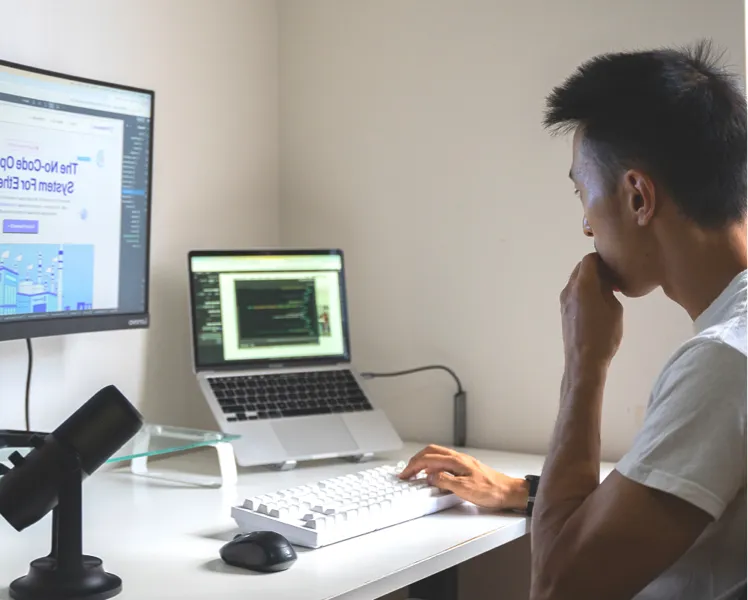


Learn how to build In-page Scroll Anchor in Webflow with clear step-by-step instructions, perfect for freelancers, designers, and Webflow beginners looking
In the fast-paced realm of web design, user experience reigns supreme. Navigating through lengthy pages can be a cumbersome task for users, often resulting in frustration and disengagement. However, fear not! With the power of in-page scroll anchors and a sticky navbar, you can effortlessly guide your audience through your content, enhancing their journey and keeping them hooked from start to finish.
Welcome to our Webflow tutorial, where we'll delve into the art of implementing in-page scroll anchors alongside a sticky navbar. By the end of this tutorial, you'll wield the skills to create a seamless browsing experience that captivates and retains your visitors. Let's dive in!
In-page scroll anchors serve as navigational signposts within your webpage, allowing users to jump directly to specific sections with a single click. These anchors are particularly handy for long-form content, such as articles, landing pages, or product descriptions. Implementing them not only streamlines navigation but also enhances accessibility and user satisfaction.
Before we dive into the technical aspects, it's crucial to outline your content structure. Identify key sections within your webpage that merit individual navigation points. These could include introduction, features, pricing, testimonials, and more. Once you've defined your sections, assign unique IDs to each, serving as the anchor points.
A sticky navbar remains fixed at the top of the viewport as users scroll down the page, ensuring continuous access to essential navigation links. In Webflow, creating a sticky navbar is a breeze. Simply select your navbar element, navigate to the position settings, and choose 'sticky' from the dropdown menu. Customize the styling to align with your design aesthetics.
With your content structure in place and the sticky navbar set up, it's time to integrate in-page scroll anchors. Return to your webpage's sections and assign the corresponding IDs you defined earlier. Then, within your navbar, create navigation links that point to these IDs. Ensure smooth scrolling by adding a simple JavaScript snippet to your project, enhancing the overall user experience.
Before deploying your revamped webpage, thorough testing is essential. Verify that each navigation link seamlessly directs users to the intended section, and ensure compatibility across various devices and browsers. Fine-tune the scrolling behavior and navbar responsiveness to guarantee optimal performance.
Incorporating in-page scroll anchors alongside a sticky navbar empowers you to deliver a browsing experience that's intuitive, engaging, and user-friendly. By guiding your audience through your content with precision and finesse, you'll not only enhance usability but also bolster conversion rates and user satisfaction.
So, what are you waiting for? Harness the power of in-page scroll anchors and sticky navbars to elevate your web design game and captivate your audience like never before. Unlock the potential of seamless navigation and watch your website soar to new heights of success!
Ready to embark on this transformative journey? Dive into our Webflow tutorial today and revolutionize your web design prowess!